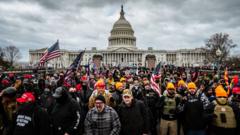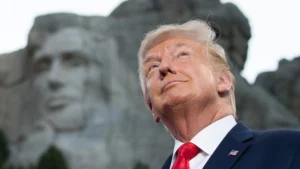A closer look at the implications of Hunter Biden's pardon and what it entails.
Hunter Biden's Pardon: A Controversial Presidential Decision

Hunter Biden's Pardon: A Controversial Presidential Decision
President Biden's clemency for Hunter Biden raises questions amidst ongoing legal battles.
US President Joe Biden has granted a presidential pardon to his son, Hunter Biden, who was facing sentencing in two high-profile criminal cases. This decision has sparked significant controversy, particularly as President Biden had previously dismissed the possibility of such an action. He defended the pardon, asserting that the charges lodged against his son were rooted in political motives rather than substantive wrongdoing.
Hunter Biden was bracing for court proceedings in connection with two federal cases. In June, he made legal history as the first child of a sitting president to receive a criminal conviction, tied to issues concerning his firearm possession. A jury in Delaware convicted him on three counts for providing false information about his drug usage during a handgun purchase. Furthermore, he was awaiting sentencing after admitting guilt in a separate federal tax case from 2016 to 2019, which comprised nine charges, including tax evasion and failure to file necessary returns. Although he faced potentially rigorous penalties, legal analysts suggested that it was likely he would receive concurrent sentences that would result in lesser time served.
A presidential pardon allows the president to absolve individuals of federal crimes, effectively providing them legal forgiveness and reinstating certain rights, such as voting and holding public office. Importantly, the president's power to pardon is extensive yet not unrestrained; it applies only to federal offenses and does not cover cases of impeachment.
Presidents across political party lines have historically exercised their clemency powers. Biden's action marks his 26th pardon since taking office. Initiatives by past presidents have often attracted scrutiny, such as Donald Trump's forgiveness of individuals like Charles Kushner, or Bill Clinton’s pardon of his half-brother Roger Clinton.
Trump has since criticized Biden’s decision as a "miscarriage of justice," questioning whether leniency will extend to those prosecuted following the January 6 riot at the Capitol. As Trump faces his own array of legal challenges, he has vowed to extend pardons to individuals involved in that event, although specifics remain ambiguous.
As this narrative unfolds, the intersection of familial ties, legal accountability, and political motivations continues to be a focal point of public discourse.
Hunter Biden was bracing for court proceedings in connection with two federal cases. In June, he made legal history as the first child of a sitting president to receive a criminal conviction, tied to issues concerning his firearm possession. A jury in Delaware convicted him on three counts for providing false information about his drug usage during a handgun purchase. Furthermore, he was awaiting sentencing after admitting guilt in a separate federal tax case from 2016 to 2019, which comprised nine charges, including tax evasion and failure to file necessary returns. Although he faced potentially rigorous penalties, legal analysts suggested that it was likely he would receive concurrent sentences that would result in lesser time served.
A presidential pardon allows the president to absolve individuals of federal crimes, effectively providing them legal forgiveness and reinstating certain rights, such as voting and holding public office. Importantly, the president's power to pardon is extensive yet not unrestrained; it applies only to federal offenses and does not cover cases of impeachment.
Presidents across political party lines have historically exercised their clemency powers. Biden's action marks his 26th pardon since taking office. Initiatives by past presidents have often attracted scrutiny, such as Donald Trump's forgiveness of individuals like Charles Kushner, or Bill Clinton’s pardon of his half-brother Roger Clinton.
Trump has since criticized Biden’s decision as a "miscarriage of justice," questioning whether leniency will extend to those prosecuted following the January 6 riot at the Capitol. As Trump faces his own array of legal challenges, he has vowed to extend pardons to individuals involved in that event, although specifics remain ambiguous.
As this narrative unfolds, the intersection of familial ties, legal accountability, and political motivations continues to be a focal point of public discourse.





















